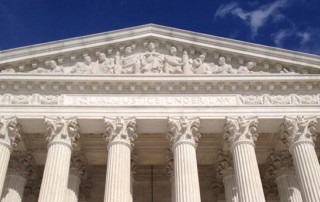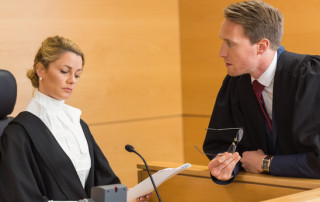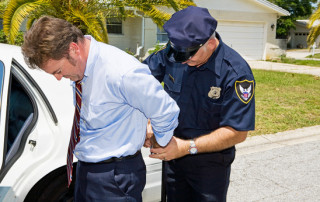Police Reform
Now seems like a good time to discuss police reform. After almost 30 years in the criminal justice system, as an Assistant Crown Attorney and Defence Counsel, I have a few suggestions. 1. Change recruitment philosophy The police are supposed to serve and protect us. What do we want in our police force? I suggest: intelligence, compassion, physical fitness. How about psychological testing? Instead of recruiting security guards, perhaps we should look at recruiting community servants. 2. Cooling-off period upon arrest Police are supposed to “touch” an arrestee. They are then supposed to read him his rights to counsel “immediately” and (if he requests a lawyer) to facilitate contact with a lawyer immediately. That rarely happens. I suggest: no touching. Tell the arrestee, “You’re under [...]
Careless Driving
As I suggested in my previous blog, never plead guilty to careless driving (unless pleading down from a Criminal Code offence). Although a conviction for careless driving is not a criminal record, it does carry serious penalties. More importantly, the case law favours the defendant. Section 130 of Ontario’s Highway Traffic Act penalizes driving “without due care and attention” or “without reasonable consideration for other persons.” (The driving must have occurred on a public road, not a private road or parking lot.) At first blush, it sounds like a two-pronged test. In practice, the courts have held that inadvertent (unintentional) negligence is enough to make out the offence (R. v. Shergill). The concern is with a lack of attention, NOT a lack of skill. Careless [...]
Bail Hearing
Under section 11(e) of the Canadian Charter of Rights and Freedoms, any person charged with an offence has the right “not to be denied reasonable bail without just cause”. Once a person has been arrested and charged, the police can either release him from the police station (with conditions) or hold him for a “show cause” hearing. Either way, the clock is ticking. If the police don’t release the accused (which must be done “as soon as practicable”), they must take him before a justice within 24 hours. (If a justice is not available within 24 hours, then “as soon as possible”.) The accused (or the Crown) must then “show cause” why he should (or should not) be released. Although there are many possible outcomes [...]
Plea Bargaining in Criminal Court
Let me repeat what I said in an earlier blog. In criminal court, a guilty plea is generally given greater weight the earlier it is entered into. There are three reasons for that. First, an early plea shows remorse – an indication that the accused is on the way to rehabilitation (an important goal of sentencing). Second, it saves the court the time and expense of a trial – the earlier the plea, the greater the savings. Third, it saves the victim and witnesses the stress and inconvenience of preparing for and testifying at trial. Is plea bargaining a good thing? Many words have been written on this topic. For academics, the concept is controversial. For practitioners, it’s a fact of life. If you’re charged [...]
How to deal with police at the roadside (traffic stops)
Every police car is equipped with a computerized mobile workstation (“MWS”), aka mobile data terminal (“MDT”). In seconds, police can learn a great deal about you without stopping you. How? By entering your plate in their MWS. If you have a criminal record, outstanding charges or even a driving record (and the plates are registered in your name), you are driving with a bulls-eye on your car. Police routinely search drivers electronically. If your name lights up their screen, you can bet the police will try to find a reason to pull you over for a closer look. Section 10 of the Charter says, “Everyone has the right on arrest or detention (a) to be informed promptly of the reasons therefore; and (b) to retain [...]
Plea Bargaining in Traffic Court
I don’t practice in traffic court very much anymore, mostly because the penalties at stake for defendants don’t justify the legal fees. As a former Assistant Crown Attorney, I once did a six-month stint prosecuting traffic court. The procedure hasn’t changed much since then. In criminal court, a guilty plea is generally given greater weight the earlier it is entered into by the accused. The reasons for that are fairly straightforward. First, an early plea shows remorse – an indication that the accused is well on the way to rehabilitation. Second, it saves the court the time and expense of a trial – the earlier the plea, the greater the savings. (Criminal prosecutions consume valuable court space and high-priced labour.) Third, it saves the victim [...]
The Right To Silence
There is no absolute right to silence in Canada. For example, if you are involved in a motor vehicle accident in Ontario, you may be required to provide details to the investigating officer. If you are charged for professional misconduct, you may be required to provide a statement to your governing body. (In that event, you should consider whether criminal charges are pending.) The right to silence is most closely associated with criminal law. Even in that context, the right is not absolute. If you are arrested and charged with a criminal offence (and hope to be released), you would have to provide a name, an address and other personal details. However, you would not be required to discuss the incident itself. But that’s not [...]








